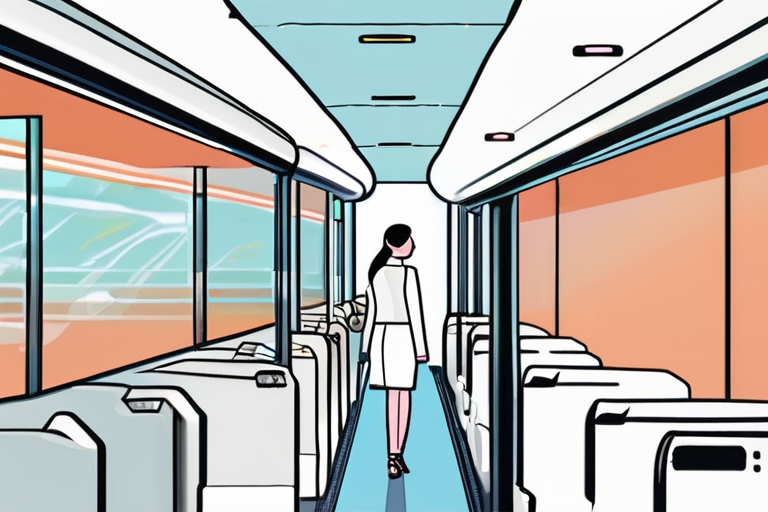The AI Travel Revolution: How Machines are Redefining the Way We Explore
Imagine stepping off a plane and being greeted by a personalized itinerary, crafted just for you. No more tedious research or endless scrolling through travel websites. Welcome to the future of travel, where Artificial Intelligence (AI) is revolutionizing the way we plan, book, and experience journeys.
For Fahd Hamidaddin, Founding CEO of the Saudi Tourism Authority and President of the upcoming TOURISE Summit, AI has transformed travel discovery into a "personal canvas." Platforms like Instagram Reels no longer just showcase generic destinations; they curate tailor-made experiences that feel almost... magical. "AI has turned travel into an art form," Hamidaddin exclaimed in an exclusive conversation with AI News.
As we embark on this AI-fueled journey, it's essential to understand the underlying technology driving these changes. At its core, AI is a machine learning system that analyzes vast amounts of data to identify patterns and make predictions. In travel, this means AI can analyze user behavior, preferences, and demographics to suggest personalized itineraries.
From Curated Videos to Booking Engines
One of the most significant impacts of AI on travel is the rise of curated content. Social media platforms like Instagram Reels have become go-to destinations for travelers seeking inspiration. These bite-sized videos showcase breathtaking landscapes, vibrant cultures, and mouth-watering cuisine – all carefully crafted to entice viewers.
But AI isn't just limited to social media. Booking engines are now using machine learning algorithms to build entire itineraries in seconds. These systems analyze user preferences, travel dates, and budget constraints to suggest customized trips. For instance, a traveler searching for a romantic getaway might be presented with a carefully curated selection of luxury resorts, fine dining options, and scenic activities.
The Double-Edged Sword of AI
While AI has undoubtedly enhanced the travel experience, it also raises important questions about the role of technology in shaping our choices. Hamidaddin acknowledges this concern: "AI can do both – give travelers more freedom or quietly steer their choices." He emphasizes the need for clear guardrails to ensure that AI is used responsibly and ethically.
This dilemma is not unique to travel. As AI becomes increasingly pervasive, society must grapple with its implications. Will machines ultimately liberate us from tedious decision-making, or will they subtly influence our preferences? The answer lies in striking a balance between technological innovation and human agency.
The Future of Travel: A Human-Centric Approach
As we navigate this uncharted territory, it's essential to prioritize human-centric design. AI should augment, not replace, the travel experience. Hamidaddin advocates for an approach that combines technology with empathy and understanding: "AI can help us understand what travelers want, but ultimately, it's up to humans to create experiences that truly matter."
The TOURISE Summit, set to take place later this year, will bring together industry leaders, policymakers, and innovators to discuss the future of travel. This gathering promises to be a catalyst for change, as stakeholders converge to shape the AI-powered travel landscape.
Conclusion: Embracing the AI Travel Revolution
As we embark on this AI-fueled journey, it's clear that technology is redefining the way we explore. From curated videos to booking engines, machines are transforming the travel experience in profound ways. While concerns about AI's influence linger, one thing is certain – the future of travel will be shaped by a delicate balance between human ingenuity and technological innovation.
Join us as we navigate this uncharted territory, where AI is redefining the way we discover, book, and live our travels. The journey has just begun, and it's time to explore the endless possibilities that AI has in store for us.
*Based on reporting by Artificialintelligence-news.*



 Hoppi
Hoppi

 Hoppi
Hoppi

 Hoppi
Hoppi

 Hoppi
Hoppi

 Hoppi
Hoppi

 Hoppi
Hoppi











